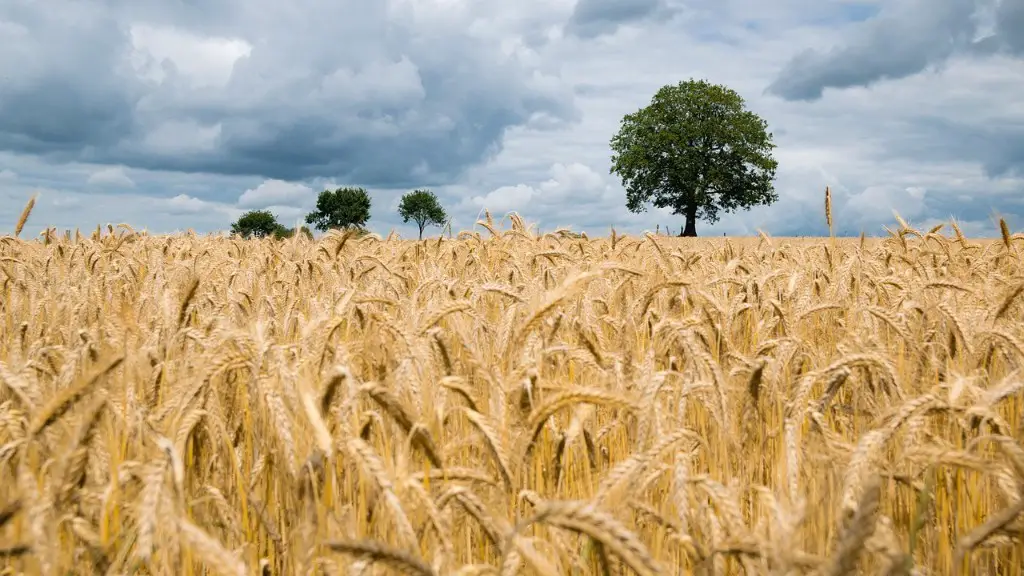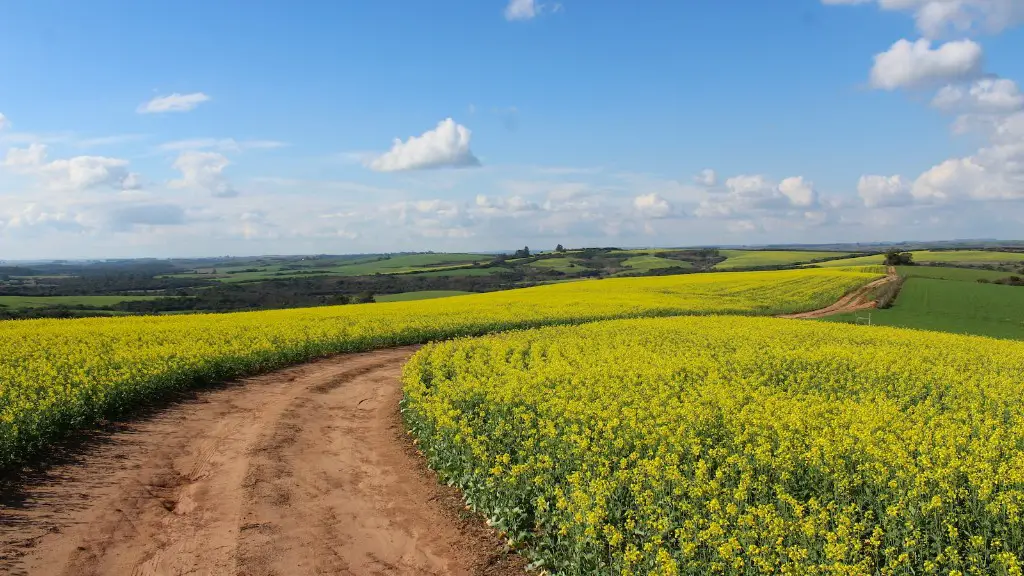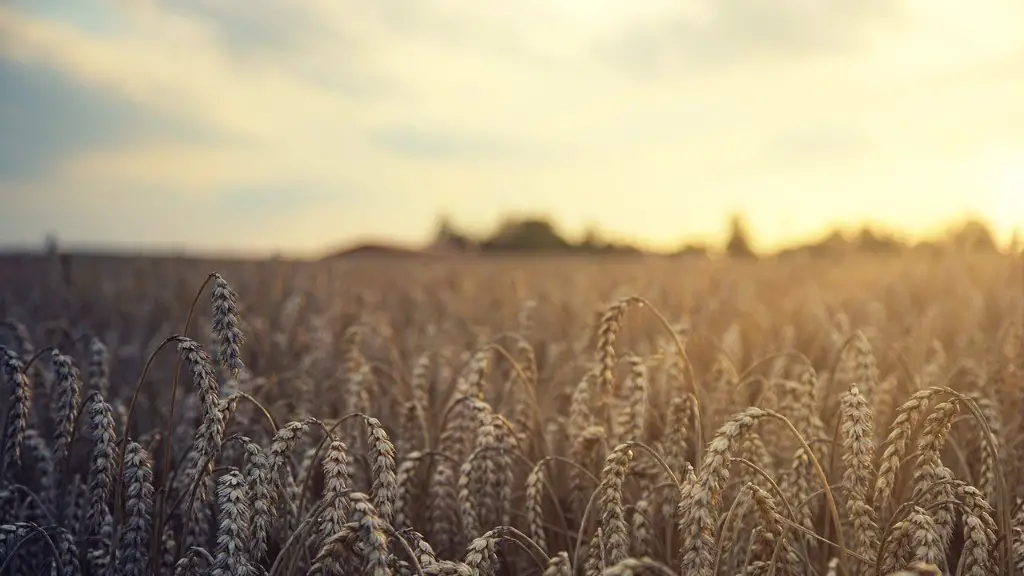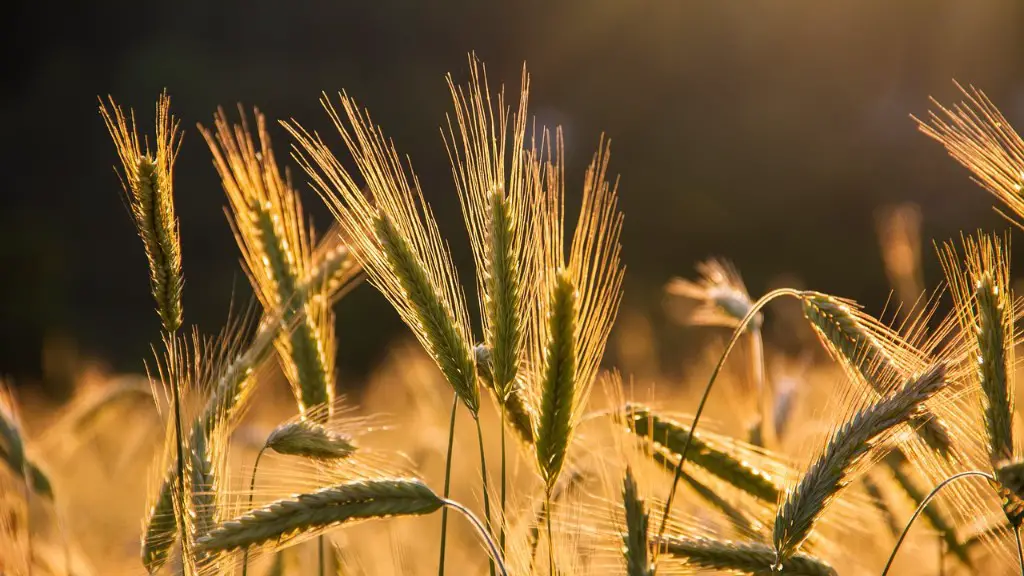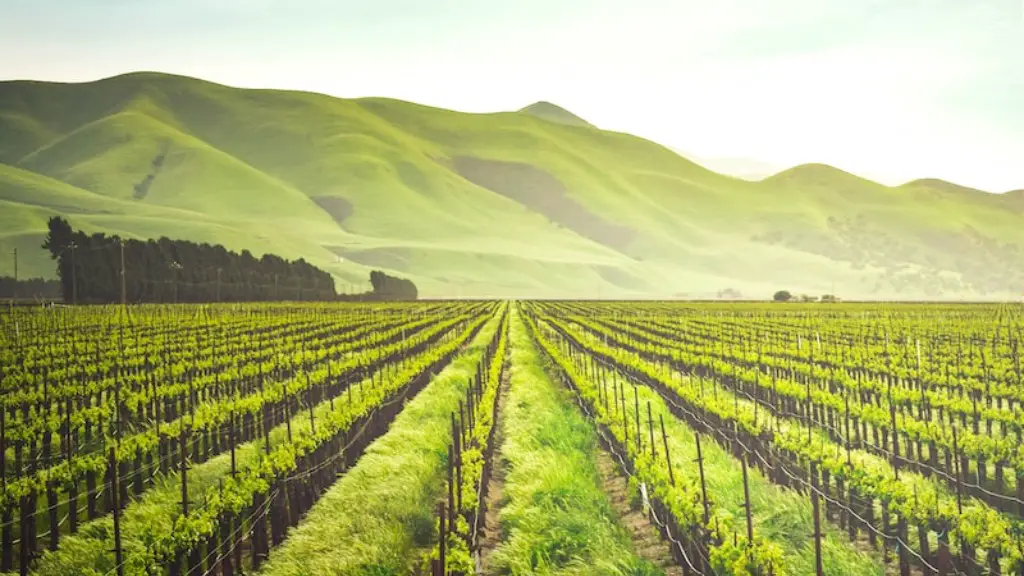Agriculture is the basis for any society. It is the process of cultivating the land for the purpose of producing crops or raising livestock. Agriculture affects society in many ways. It provides food for people and animals, it contributes to the economy, and it helps to shape the physical landscape.
Agriculture has a large impact on society. It provides us with food, fibers, and fuel. It affects the economy, the environment, and our social structure.
Why is agriculture important to society?
Agriculture is the world’s largest industry. It employs more than one billion people and generates over $13 trillion dollars worth of food annually. Pasture and cropland occupy around 50 percent of the Earth’s habitable land and provide habitat and food for a multitude of species. Agriculture is a vital part of the global economy and the food security of billions of people.
The societal effects of agricultural practices are far-reaching and complex. They include changing diets, the role of women in agricultural production, and the economic purpose of agriculture. Agriculture is a key driver of societal change, and its effects are felt by everyone, whether they live in rural or urban areas.
What are the 5 major consequences of agriculture
Agriculture has had a profound impact on the environment. Five of the most significant environmental effects of agriculture are soil fertility loss, eutrophication of water bodies, deforestation, climate change and pesticide pollution.
Soil fertility loss is one of the most serious environmental impacts of agriculture. It occurs when the nutrients in the soil are depleted faster than they can be replenished. This can lead to a decline in crop yields and an increased reliance on chemical fertilizers.
Eutrophication of water bodies is another major environmental impact of agriculture. It occurs when excess nutrients from agricultural runoff enter waterways and cause an overgrowth of algae and aquatic plants. This can lead to a decline in water quality and an increase in the spread of harmful bacteria and viruses.
Deforestation is another major environmental impact of agriculture. It occurs when forests are cleared to make way for crops or livestock. This can lead to a loss of habitat for wildlife, an increase in greenhouse gas emissions and a decline in the quality of the air and water.
Climate change is another major environmental impact of agriculture. Agriculture is a major source of greenhouse gas emissions, which contribute to climate change. Agriculture can also be affected by climate change, as changes in temperature and precipitation can impact
Agricultural production can have significant impacts on the environment and society. Some of the key issues include changes in the hydrologic cycle, the introduction of toxic chemicals, nutrients, and pathogens, the reduction and alteration of wildlife habitats, and the spread of invasive species. These impacts can be negative or positive, depending on the specific situation. In some cases, agricultural production can lead to improvements in the environment and society, such as when it results in increased food production or improved soil quality. In other cases, however, it can have negative consequences, such as when it leads to water pollution or habitat destruction. It is important to consider these issues carefully when assessing the impact of agricultural production on the environment and society.
What are 3 reasons why agriculture is important?
Agriculture is the backbone of the Nigerian economy and plays a vital role in the country’s development. It is the main source of food for the population and provides raw materials for industry. Agriculture also employs a large number of people, helps to protect the environment and preserves natural resources. In addition, agriculture is a major source of foreign exchange and export earnings, and is essential for the subsistence of the people.
Agriculture is the backbone of many economies and the key to food security. The sector is also a major contributor to environmental degradation. However, agriculture also has the potential to create the enabling environment by the increase in biodiversity. This will lead to healthier soil, less erosion, better water conservation, and healthier pollinators.
The agricultural sector is a vital part of the economy and investing in it can have many positive ripple effects. Proper policies and incentives can help to improve food security, lower rural and urban poverty, reduce inequality, and enhance environmental outcomes. By investing in the agricultural sector, we can help to improve the lives of many people and make a positive impact on the world.
The agricultural revolution was a turning point in human history, and it had a profound impact on the way we live today. It was a major factor in the rise of civilization, and it allowed humans to transition from a hunter-gatherer lifestyle to a more settled, agrarian way of life. The agricultural revolution also had a number of consequences for humans, some of which were positive and some of which were negative.
On the positive side, the agricultural revolution led to a more stable food supply, which allowed for the development of cities and civilizations. It also allowed for the domestication of animals, which provided humans with a new source of labor and transportation. On the negative side, the agricultural revolution has been linked to a number of societal ills, including inequality, disease, and malnutrition.
Why is it better to live in agricultural society
Agricultural societies are typically more settled than hunter-gatherer or semi-nomadic pastoral societies because people in agricultural societies permanently live near the land that is being farmed. This means that people in agricultural societies generally have a more settled lifestyle than those in hunter-gatherer or semi-nomadic pastoral societies.
The Agricultural Revolution was a game-changer for humanity. Out of agriculture, cities and civilizations grew, and because crops and animals could now be farmed to meet demand, the global population rocketed—from some five million people 10,000 years ago, to more than seven billion today.
The Agricultural Revolution not only allowed for the growth of cities and civilizations, but also increased the global population. Today, we are reaping the benefits of the Agricultural Revolution, and we owe a lot to the early farmers who made it all possible.
What is a negative impact on agriculture?
Agriculture contributes to many different environmental issues. These issues can cause environmental degradation, including climate change, deforestation, biodiversity loss, dead zones, genetic engineering, irrigation problems, pollutants, soil degradation, and waste.
As the world population continues to grow, the demand for food will increase. This could lead to even more pressure on the environment as farmers try to meet the demand. It is important to find ways to produce food sustainably, in order to protect the environment and the future of our planet.
There is a growing movement to shift away from large-scale, conventional farming in favor of more sustainable practices. Sustainable farming includes a diversity of crops, limits the use of synthetic inputs, and relies on natural processes like crop rotation and composting to maintain soil fertility. These practices can help to mitigate the negative impacts of conventional farming, and create a more sustainable food system.
What are 5 reasons why agriculture is important
Agriculture is the main source of raw materials for many industries, such as cotton and jute fabric, sugar, tobacco, edible and non-edible oils. Many other industries, such as the processing of fruits and vegetables and rice husking, also get their raw material mainly from agriculture.
Without agriculture, we would not have the necessary raw materials for other industries, and thus would not be able to survive. Every industry relies on agriculture in some way, making it the most important industry there is.
What is the positive impact of agriculture?
While agriculture can have negative impacts on the environment, it can also have positive impacts. Agriculture can trap greenhouse gases within crops and soils, or mitigate flood risks through the adoption of certain farming practices. These positive impacts can help offset the negative impacts of agriculture, and overall improve the environment.
1. Agriculture is the main source of raw materials for many industries.
2. Agriculture is important to international trade.
3. Agriculture plays a big role in a nation’s revenue.
4. Agriculture provides employment for many people.
5. Agriculture is crucial to a country’s development.
6. Agriculture can help heal the environment.
7. Agriculture goes hand-in-hand with war.
8. Agriculture is a way of life for many people.
How does agriculture reduce poverty
The very poorest people in society benefit the most from agricultural growth. This is because agricultural growth increases the demand for labor, and thus the probability of obtaining employment. Additionally, agricultural growth may also increase the salary level for workers, further increasing their income.
Agriculture is the backbone of human civilization. It encompasses crop and livestock production, aquaculture, fisheries and forestry for food and non-food products. agriculture was the key development in the rise of sedentary human civilization, whereby farming of domesticated species created food surpluses that enabled people to live in cities.
Warp Up
The way agriculture affects society is largely dependent on the type of agriculture being practiced. For example, subsistence agriculture, which is the main form of agriculture in many developing countries, has a very different effect on society than commercial agriculture, which is the main form of agriculture in developed countries.
Subsistence agriculture is mostly carried out by small-scale farmers who grow crops mainly for their own consumption. This type of agriculture often has little impact on the wider society, as the farmers are not producing for the market. However, subsistence agriculture can have a negative impact on society if it leads to deforestation, as this can lead to soil erosion and a loss of biodiversity.
Commercial agriculture, on the other hand, is carried out on a large scale and involves the production of crops for sale. This type of agriculture can have a positive or negative effect on society, depending on how it is managed. For example, if commercial agriculture is well-managed, it can provide jobs and economic growth, but if it is not managed well, it can cause environmental damage and social problems.
The way we grow and produce food has a profound impact on society. It affects our health, the environment, and the economy. Agriculture also plays a vital role in social and cultural traditions.
